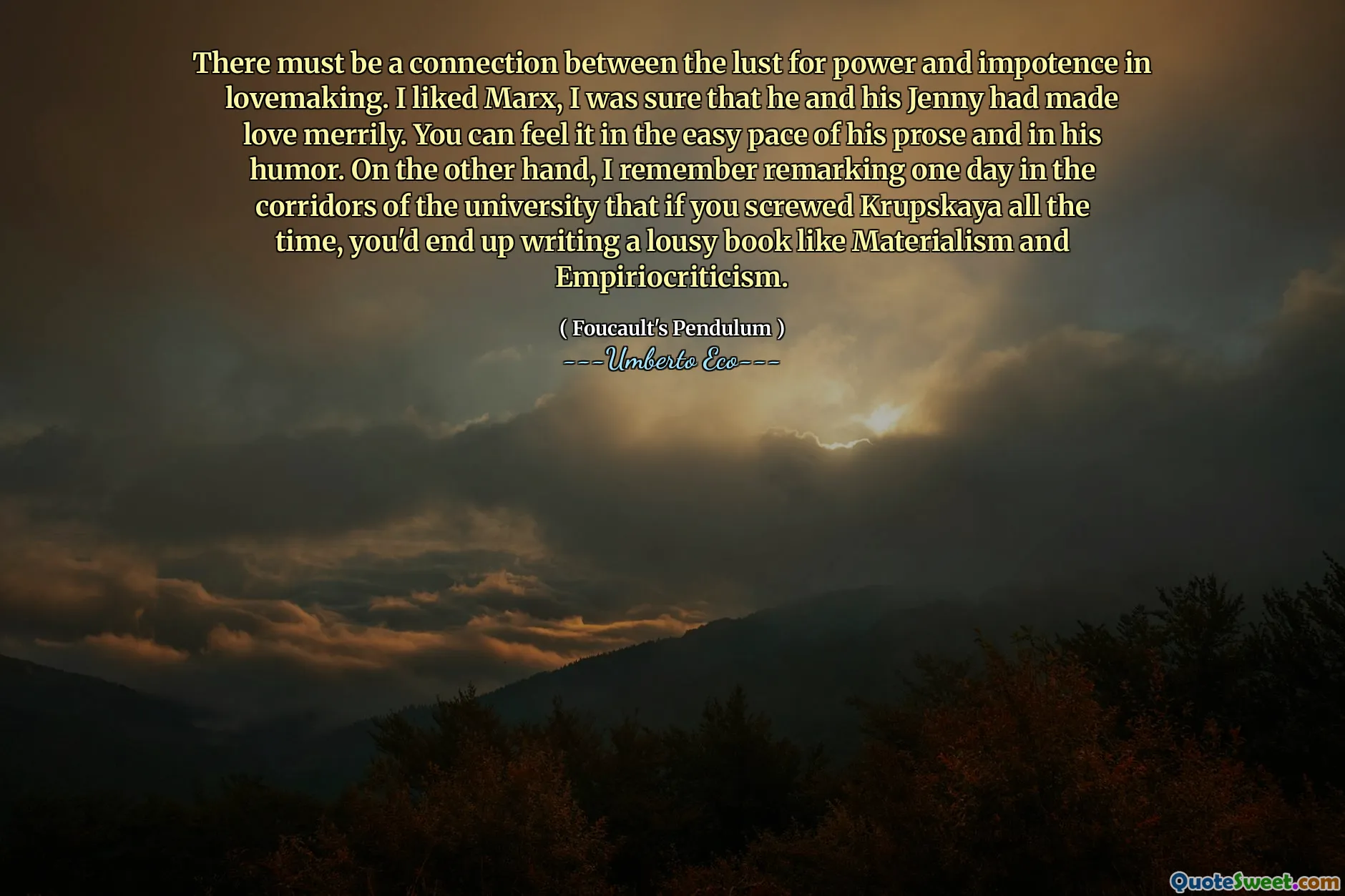
There must be a connection between the lust for power and impotence in lovemaking. I liked Marx, I was sure that he and his Jenny had made love merrily. You can feel it in the easy pace of his prose and in his humor. On the other hand, I remember remarking one day in the corridors of the university that if you screwed Krupskaya all the time, you'd end up writing a lousy book like Materialism and Empiriocriticism.
This quote offers a compelling reflection on the intertwined nature of desire, power, and intellectual productivity. The author employs humor and irony to critique how personal passions and relationships can influence one's academic or philosophical output. The mention of Marx, along with his wife Jenny, serves as a humorous nod to the idea that personal relationships and physical intimacy might have a bearing on ideological and scholarly work, suggesting that underlying emotional or physical energy could shape intellectual endeavors. The comment about continuous sexual activity with Krupskaya leading to poor quality writing highlights a satirical perspective on how lifestyle choices and personal satisfaction might impact critical thinking or creative achievements. It also subtly underscores the idea that obsession—whether with power, love, or sex—can diminish the quality of one's work. Moreover, the quote explores the notion that political and philosophical ideas are not formed in a vacuum; they are deeply rooted in personal lives, desires, and contradictions. The humorous yet pointed tone invites us to reflect on how human passions and personal circumstances influence not only individual lives but also the production of intellectual history. Among the many layers here, Eco seems to suggest that authenticity in thought might be compromised or enriched by the complex web of personal experiences and emotional investments, making the pursuit of knowledge inherently personal and perhaps imperfect. It provokes further thought about the balance between personal life and intellectual activity, as well as the sometimes contradictory nature of human motivation.








